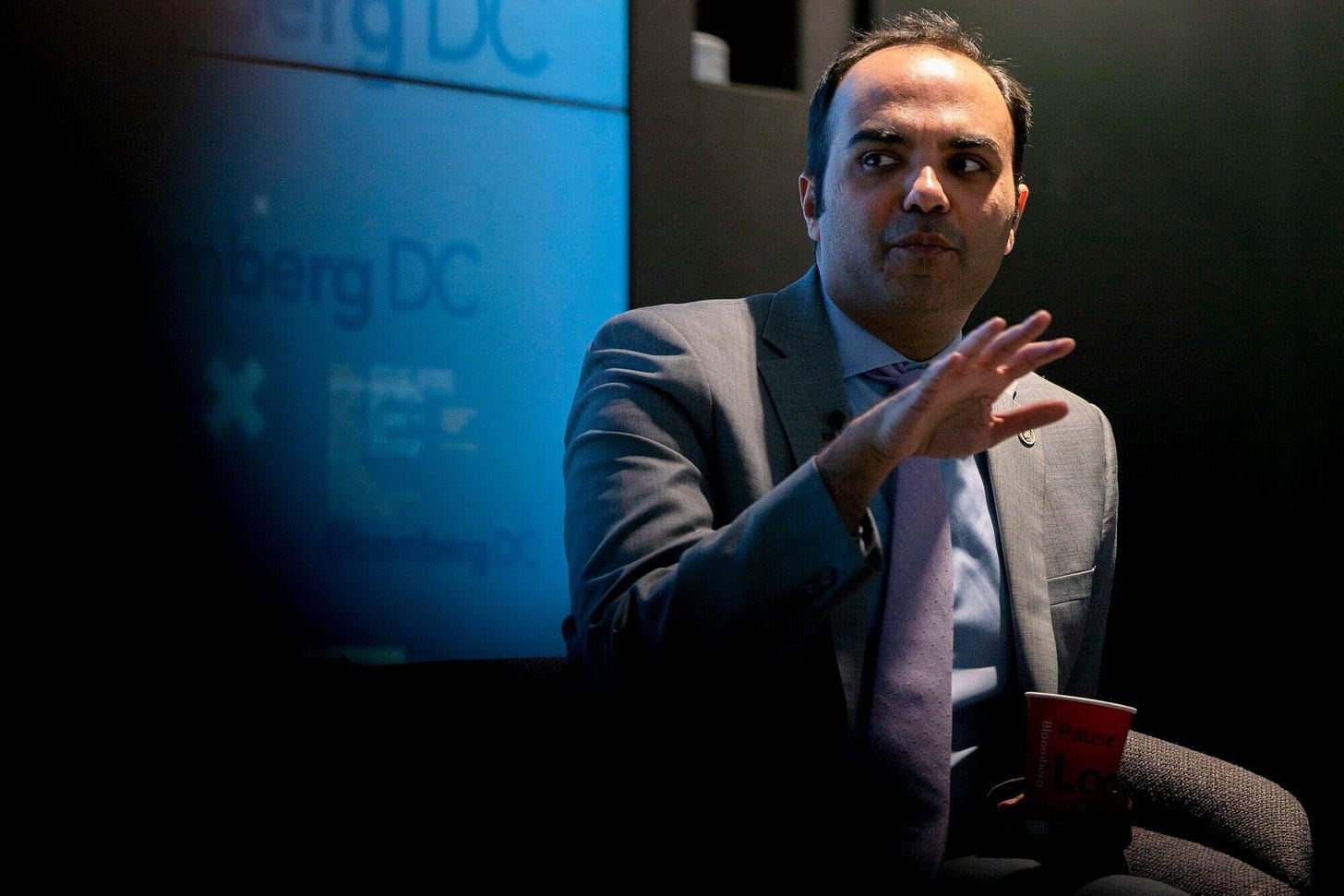The bureaucratic empire that Rohit Chopra built at the Consumer Financial Protection Bureau (CFPB) was destined to crumble under the weight of its own excesses. From the moment he took the helm, Chopra ruled the agency as an unaccountable overlord, brandishing the regulatory hammer to bludgeon financial institutions into compliance with a progressive economic agenda. His tenure was a textbook case of administrative state overreach—punishing businesses, stifling competition, and reducing consumer choice in the name of “protection.”
Trump, never one to tolerate bureaucratic tyranny, did what any president committed to free markets and limited government would do: he fired him. It was a decisive blow against an agency that had become a tool of leftist economic interventionism. Chopra’s CFPB sought to dictate overdraft fees, medical debt reporting, and lending practices with a zeal that bordered on economic totalitarianism. His departure was not just a personnel change—it was a repudiation of the entire progressive regulatory apparatus that suffocates innovation and punishes prosperity.
Enter Scott Bessent. Trump’s Treasury Secretary, a seasoned financial strategist, wasted no time in slamming the brakes on the CFPB’s aggressive agenda. His first move? Freezing all rulemaking, litigation, enforcement actions, and public communications. In other words, the CFPB has been placed in regulatory purgatory, stripped of its ability to continue Chopra’s ideological crusade.
This is no mere administrative delay. Bessent’s directive signals a fundamental shift in the CFPB’s role—from an activist regulator imposing progressive dictates to a watchdog with a sharply curtailed mandate. Critics are already decrying the move as a "shutdown" of the agency, but that’s precisely the point. For too long, the CFPB has operated as an unelected economic police force, wielding unchecked power over financial institutions that should be guided by market forces, not bureaucratic fiats.
Among the casualties of Bessent’s freeze are two of Chopra’s most controversial policies: the ban on medical debt in credit reports and the cap on overdraft fees. These regulations, heralded by progressives as consumer-friendly, in reality, did little more than distort market mechanisms and restrict financial services. The irony, of course, is that such measures often hurt the very people they claim to help—raising costs, reducing access to credit, and burdening small lenders with compliance nightmares.
Bessent’s CFPB overhaul is not occurring in a vacuum. It aligns seamlessly with the broader Trump-Musk push to reduce the bloated administrative state. As the head of the newly minted Department of Government Efficiency (DOGE), Elon Musk has been vocal about his desire to eliminate wasteful, duplicative, and overreaching bureaucracies. The CFPB, a relic of Obama-era overregulation, is a prime target.
Musk has even floated the idea of dismantling the agency entirely—a proposal that, until recently, might have been dismissed as libertarian fantasy. But in the new Trump era, where government excess is under siege, such an outcome is not beyond the realm of possibility. With the CFPB effectively neutered under Bessent’s leadership, the question becomes not whether it can be reformed, but whether it should exist at all.
Of course, the regulatory state does not surrender easily. Expect legal challenges, congressional hearings, and media hysteria over the "gutting" of consumer protections. The left will frame this as an assault on the little guy, ignoring the reality that Chopra’s CFPB was never about protecting consumers—it was about controlling markets.
Bessent’s leadership marks a turning point. Whether he dismantles the CFPB completely or merely reins in its worst excesses, one thing is certain: the days of unchecked regulatory power at the CFPB are over. In its place, a vision of financial markets governed not by unelected ideologues, but by competition, innovation, and consumer choice, is beginning to take shape.
For those who believe in limited government, free markets, and the restoration of economic liberty, Bessent’s CFPB freeze is a reason to celebrate. For the bureaucrats who thrived under Chopra’s reign, it’s a warning: the era of unaccountable regulatory rule is coming to an end.
If you don't already please follow @amuse on 𝕏 and subscribe to the Deep Dive podcast.





